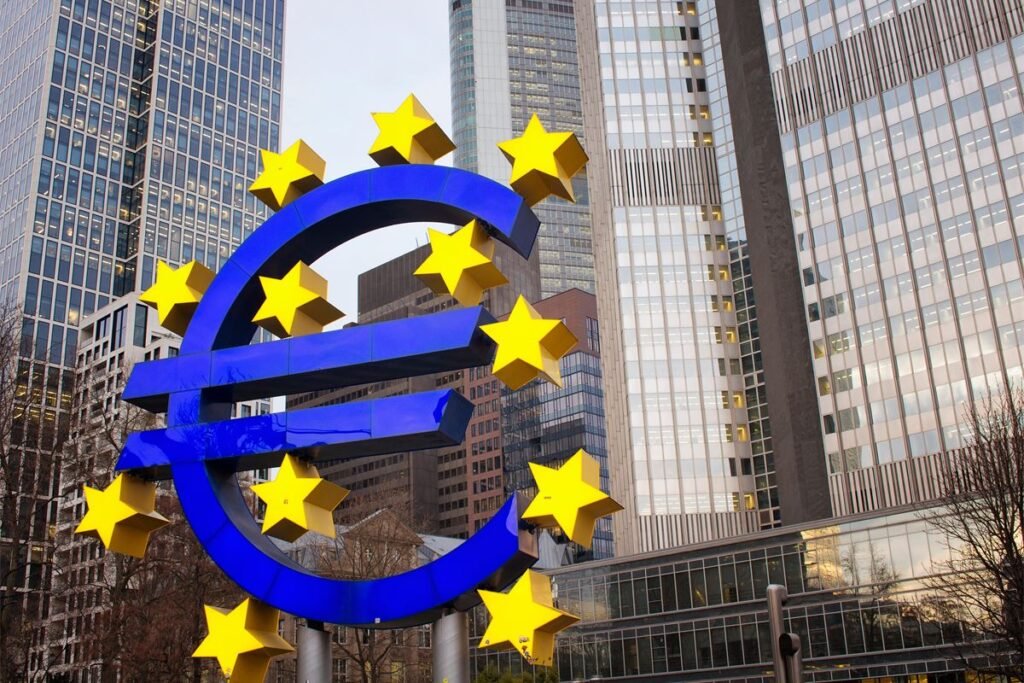Europeans are becoming aware of how dependent we are on the US across many sectors of the economy, and payments systems are no exception. However, a promising digital payment project already is in the pipeline: the digital euro.
A properly regulated central bank digital currency (CBDC) like the digital euro should act as a digital twin of physical cash – expanding private, safe and secure payments into the online realm where so many transactions now take place.
Adopting the digital euro would be good for businesses as well as consumers, reducing the pricing power of US-based card systems that currently account for more than six out of ten transactions made by Europeans and take a hefty chunk out of retailers’ revenue.
Like any ambitious project, the digital euro has attracted its share of conspiracy theories around replacing cash or monitoring citizens. In fact, the greater risk lies in maintaining our current dependency whereby the US can exert pricing power and, in an extreme case, disrupt European payments.
Convenient, safe and secure
The digital euro would be created under the Single Currency Package, a legislative proposal put forward by the European Commission in June 2023 that would also strengthen the acceptance and availability of physical cash. Backed by the ECB, the digital euro will promote trust and stability in both public and private means of payment.
Above all, the digital euro aims to create value for consumers. It aims to combine the best of both worlds: the security and reliability of physical cash combined with the convenience and timeliness of the digital world, without monetising data.
It would be the most private means of digital payment on the market, operated by a public-private partnership between the Eurosystem and payment service providers. Based on modern technology, this system puts consumers in control of what, if any, data they want to share. They will be able to make digital payments offline and convert to and from bank deposits at any time.
Businesses, meanwhile, will benefit from a single payments standard and efficient pricing. Regulation has not stopped payment systems providers from increasing their interchange fees, despite economies of scale stemming from the doubling of electronic payments since 2019. This shows that US card giants enjoy a dominant position in the payments market and European businesses, which tend to be small, can’t stand up to them.
The digital euro has been designed to fit into the current European payments landscape. It consciously builds on many existing regional or local payment initiatives and will also work seamlessly with the recently introduced instant payments. It will join the wallets of European payment service providers alongside private offerings. Consumers will have the choice of how to pay and the certainty of accessing their money anywhere and anytime in the euro area and beyond.
Besides being compatible with existing private-sector services, the digital euro will encourage further innovation in the European financial services industry. Conditional payments, smart contracts, offline payments and other add-ons will provide the necessary incentives for a sustainable public-private partnership.
Enhancing strategic autonomy
The digital euro would also, crucially, be an instrument to strengthen our strategic autonomy and prevent possible payment disruptions.
The geopolitical reshuffle after the US presidential elections has exposed the lack of strategic autonomy in the EU, in terms of both the euro’s role as a global reserve currency and Europe’s reliance on US tech giants in digital payments.
In January, President Donald Trump issued an executive order banning the development of CBDCs, announcing instead that the US would develop “stablecoins” to strengthen the sovereignty of the US dollar. This digital asset backed by US government bonds would be a payments and savings asset aiming at ensuring dollar hegemony, thereby putting pressure on the euro.
The combination of Trump’s appetite for trade restrictions and the EU’s dependency on US-based card schemes exposes the EU to payment risks. Payments through US providers could face additional costs or, in an extreme case, be cut off entirely. If that were to happen tomorrow, we lack an alternative European instrument to cushion the blow.
The era of European interests being fully aligned with those of the US is over, and any dependency on our part is a strategic weakness. That’s just one more reason why the digital euro’s time has come.
Sign up to The Parliament’s weekly newsletter
Every Friday our editorial team goes behind the headlines to offer insight and analysis on the key stories driving the EU agenda. Subscribe for free here.

